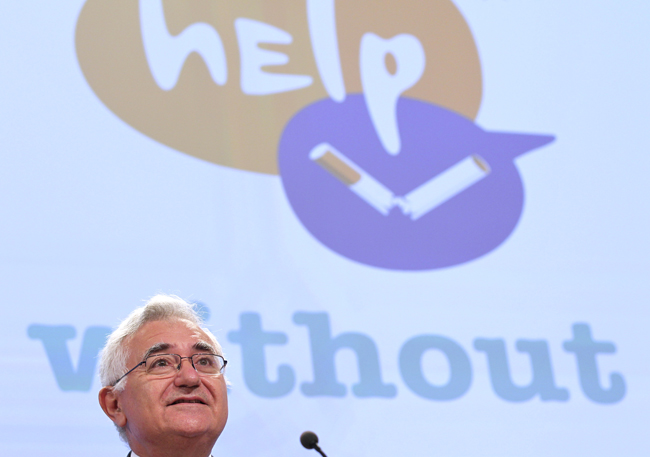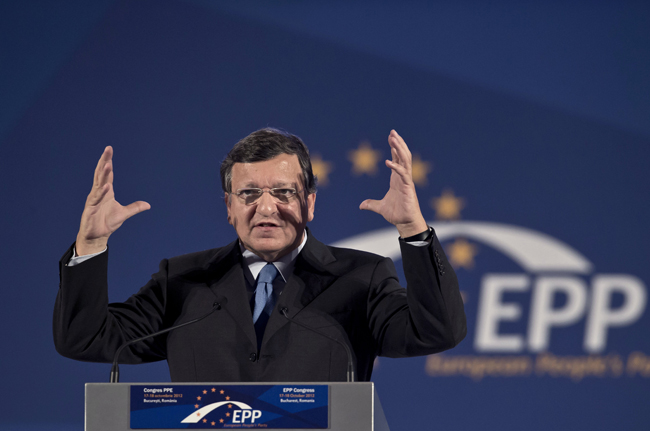There was no love lost between EU Commission President Jose Barroso and his former Commissioner John Dalli as the two slugged it out in the European Court of Justice in Luxembourg yesterday.
Proceedings kicked off with the judge asking Mr Dalli to give a statement on the exact happenings on 16 October 2012, the day when Mr Barroso asked him to step down.
According to Mr Dalli, Mr Barroso effectively presented him with two options during the meeting, either to resign or be sacked. Mr Dalli asked for 24 hours in order to consider his position, but the EU Commission President told him that he had 30 minutes to hand in his resignation.
He told the Court that he was aware of the Olaf investigation but did not know the investigation had been concluded. Mr Barroso confronted him with the findings during the meeting, but did not show him the report.
Throughout the meeting, Mr Dalli continually asked him to see the report, but Mr Barroso refused.
Mr Dalli pointed out to the Court that if it were up to the Commission, the leaked Olaf report would still be secret.

Dalli held two ‘inappropriate’ meetings in Malta
The Olaf report made reference to two particular meetings which Mr Dalli had. One of the meetings was with a representative from the tobacco giants Phillip Morris, Thomas Hammagen. Mr Dalli met Mr Hammagen with Silvio Zammit. They met at a Gozo hotel when Mr Dalli was on holiday.
Mr Hammagen reported Mr Dalli’s position after the meeting as being pro-health.
The second meeting was with Maltese lawyer Gayle Kimberley. Mr Dalli accused Olaf of hiding the fact that Dr Kimberley was not representing Swedish match during the meeting.
Mr Dalli argued with Mr Barroso for about an hour. He said the decision could seriously harm him and his family, and he wanted time to consult a lawyer.
After the meeting, Mr Dalli went back to his office. He called his family first, and then told his cabinet that he will no longer be Commissioner. He also found a missed call from then Prime Minister Lawrence Gonzi.
Mr Dalli said he wanted to issue a press release after the meeting, but his staff had been instructed not to help him.
Mr Dalli then managed to issue a press statement and was interviewed on TV Hemm.
He said his resignation was not voluntary, as being a politician he could not stay on in the post if he was not wanted.

Resignation was unambiguous – Barroso
In his testimony, Mr Barroso insisted that Mr Dalli resignation was unambiguous and he did so of his own free will.
The President had been instructed not to speak to Mr Dalli about the investigation, but once this restriction was lifted he did so immediately prior to the summer recess.
Mr Barroso said the first meeting with Mr Dalli on the Olaf investigation took place on 25 July, and not on 16 October, the day of Mr Dalli’s resignation.
Mr Barroso said that he wanted the Commission to be able to react if news of the investigation broke during the summer break.
During the October meeting, Mr Barroso confronted Mr Dalli with the conclusions of the Olaf report and the “unambiguous circumstantial evidence” contained in the report.
Mr Dalli admitted that the meetings he had with tobacco lobbyists, which occurred thousands of miles away from the Commission without any officials being present were not ideal, Mr Barroso said.
Pointing out that he is a lawyer by training, Mr Barroso acknowledged the importance of the presumption of innocence concept, but political implications had to be considered as well.
Mr Barroso did not accept Mr Dalli’s request for 24 hours to consider his position for fear of leaks about the resignation. He said he asked Mr Dalli to resign voluntarily, which Mr Dalli accepted.
Commission officials were then called in and a statement announcing the resignation was read out to Mr Dalli. Mr Barroso said the statement made it clear that Mr Dalli was resigning, and at no point did the former Commissioner contest the statement.
‘Unthinkable’ for Dalli to stay on in Commission role
Mr Barroso said he had completely lost confidence in Mr Dalli, and it was unthinkable for him to continue in his role, particularly because of the sensitivity of the tobacco directive which he was working on.
The first time Mr Barroso spoke to Dr Gonzi about the Olaf investigation was when he phoned him about Mr Dalli’s resignation.
Mr Barroso said he would have fired Mr Dalli if he did not resign. Had Mr Dalli remained in office, the tobacco directive would not have been passed.
He questioned why Mr Dalli changed his position on the resignation and later came up with a number of baseless conspiracy theories.
The EU Commission President prepared two statements prior to the meeting, in the hope that Mr Dalli would have a convincing reply to the allegations. This would have allowed Mr Barroso to defend Mr Dalli while maintain the Commission’s reputation.
However, Mr Dalli failed to convince him, Mr Barroso said.

Judge asks how Dalli could defend himself without seeing report
The lead judge asked the Commission President how Mr Dalli could possibly defend himself without seeing the Olaf report. In reply, Mr Barroso said the meeting was about shouldering political responsibility, and it was not a legal process.
Mr Barroso expected a more convincing explanation from Mr Dalli, but instead he confirmed he knew Silvio Zammit, and Mr Zammit was setting up meetings about the tobacco directive. Mr Dalli admitted the meetings were “inappropriate,” Mr Barroso said.
He said the Commission President has the authority to sack Commissioners in these sort of circumstances.
He said there was no reason for him to believe that the Olaf investigation was not in order. There was no need for Mr Dalli to consult a lawyer because the resignation was a political decision, Mr Barroso said. High-ranking officials have clear obligations under the EU Treaty, and Mr Dalli could seek legal advice at a later date.
Mr Barroso said the facts about the irregular meetings outside of Brussels brokered by a restaurateur were enough for him to lose his confidence in Mr Dalli.
Dalli concerned about his pension and allowance
Mr Dalli’s former head of cabinet Joanna Darmanin told the Court that after the meeting with Mr Barroso, Mr Dalli informed her that there was a “problem,” and he needed to call his wife.
Mr Dalli also expressed concern about his pension and allowances, she said.
One member of staff asked Mr Dalli if there was any truth to the allegations that he met tobacco lobbyists. Mr Dalli replied that it is only natural for such meetings to take place given his position.
Mr Dalli had a dispute with another member of his staff. He insisted that he wanted to issue a statement as Commissioner, but his staff member told him that as of 5pm he is no longer Commissioner.
Ms Darmanin pointed out to Mr Dalli that it was unwise of him to deny the allegations contained in the Olaf report if by his own admission he had not actually seen the report.
Responding to questions by the judge, Ms Darmanin said she was unaware of the Olaf investigation prior to the meeting with Mr Barroso.
Contrary to Mr Dalli’s allegations that his staff were informed not to assist him after the meeting, Ms Darmanin said she received no such instruction. On the contrary, Mr Dalli still had access to his secretariat and was assisted by his staff in the days following the fateful meeting.
Ms Darmanin said no one formally instructed her not to help Mr Dalli draw up a statement as Commissioner. Rather, she took heed of the statement issued by the Commission saying that Mr Dalli is no longer a Commissioner.